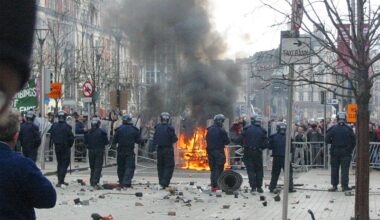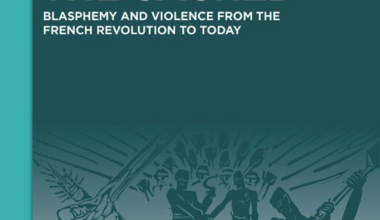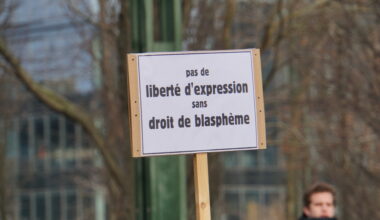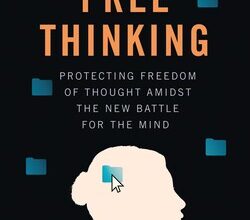Trains of (Free)Thought is a four-part series of reflections prompted by the author’s travels through France, Italy, Switzerland, and Germany between 26 August and 23 September 2025. Other instalments in the series can be read here. All images are the author’s unless otherwise stated.
There is a road near the Cathédrale Sainte-Réparate in Old Nice, France, named after Francis Gallo. A memorial tablet affixed to a wall at the corner of the street tells us that the Nazis killed Francis at Saint-Julien-du-Verdon on 11 June 1944. He was 17 years old. A database entitled Les Fusillés 1940-1944, associated with the University of Paris, holds an entry for Francis, which explains that he had been a student at the Lycée Masséna and was arrested after participating in the surge of Resistance activity that followed the Allied landings at Normandy on 6 June. Along with several others, Francis was interrogated, tortured, and eventually executed in response to the killing of a regional head of the German security police by Resistance forces.
This modest monument in defiance of tyranny, etched and fastened in the quiet fortitude of stubborn stone, will endure above all who pass this way. Such testaments are particularly moving because they combine individuality, locality, communality, and materiality in one succinct arrangement. Together, these are perhaps the primordial elements of memory, which the enemies of civilisation will always try to erase and replace with their own twisted inversion of reality. Such are the stakes of the discipline of History as a tussle between truth and untruth, and therein lies the duty of the historian, to retrieve and preserve truth from the past. A part of this endeavour, not an obstacle to it, is the reality that truth is sometimes inaccessible, withheld in whole or in part from us until we identify and locate the names, the places, the stories, and the stones.

Five days after the execution of Francis Gallo in the south, Marc Bloch, the great French historian, a founder of the Annales school, veteran of both world wars, and Resistance operative, was murdered by the Gestapo near Lyon, having been captured and tortured for several months. On my travels in France, I have been reading Bloch’s distillation of historical theory and practice, The Historian’s Craft, the manuscript for which he had produced in 1941 and 1942 before joining the Resistance. His long-time scholarly collaborator and fellow Annales founder, Lucien Febvre, collated and published the unfinished work in 1949. Although short, the book is filled with gems of historical nuance and analytical subtlety, valuable to anyone interested in understanding the past and essential reading for aspiring historians, not only for the specific methodological and philosophical recommendations that Bloch makes, but also, crucially, as an inspirational point of departure in the pursuit of new ways of thinking historically.
Recognised as a seminal scholar of medieval France, Bloch’s Jewish identity, secularism, and republicanism combined to foster an expansive and tenacious, yet granular and sensitive new approach to historical ideas and arguments. As Katherine Stirling has emphasised, the wrongful conviction of Alfred Dreyfus for treason in 1894 exemplified the rise of modern French antisemitism during Bloch’s youth, likely imbuing him with heightened sensitivity to the importance of interrogating evidence, exposing deception, and pursuing truth amidst a sharpening distinction between liberalism and authoritarianism.
While there is no evidence that Bloch himself was an outright, self-avowed freethinker, I have been struck by the many instances in which the book seems to advocate for a novel kind of free enquiry in historical scholarship. Equally in the reverse direction, the ideas and arguments reveal the ways in which a heightened historical consciousness stands to benefit freethinkers. As well as embracing his Jewish ancestry, Bloch’s work took seriously secularist and atheistic ways of thinking, all the while stressing the symbiotic relationship between history and religion.
Published posthumously, the book conveys a bittersweet spirit of enduring collaboration and camaraderie. A long-time intellectual ally, Febvre provided a ‘Note on the Manuscripts’ that entwines an explanation of the practical procedures involved in preparing Bloch’s writing for print with a heartfelt, heartbreaking tribute to the author and his wife, Simonne Vidal, ‘who died in the same cause as her husband and in the same French faith’. Moreover, the version in my possession is a 2015 reprint of the 1992 edition, which includes a preface written by the eminent cultural historian Peter Burke, who offers a reaffirming glimpse into Bloch’s political consciousness alongside his enduring commitment to the Annales focus on long-term, far-reaching, interdisciplinary history that recentres the entanglement of human and environmental processes.
In the text proper, Bloch confronts a range of problems that should preoccupy historians and freethinkers alike, not merely by reiterating, but also by complicating and challenging their assumptions about the relationship between history, religion, and secularism. The work also invites us to rediscover and reinforce some crucial foundations that seem to have become eroded in academic circles over the last few decades. For instance, there is an unapologetic, yet delicate and nuanced insistence on the necessity of the concept of ‘civilization’, the value of which, Bloch suggests, must depend in turn on an active historical consciousness and the pursuit of robust scholarly practices.
This is not to say that ‘civilization’ is fixed in place or guaranteed to a specific culture. The particular sense of history embedded within Western civilisation, Bloch argued, is owed to ‘both the Christian and classical heritage’. However, he went on to explain that:
…civilizations may change. It is not in itself inconceivable that ours may, one day, turn away from history, and historians would do well to reflect upon this possibility. If they do not take care, there is danger that badly understood history could involve good history in its disrepute. But should we come to this, it would be at the cost of a serious rupture with our most unvarying intellectual traditions.
Later in the text, Bloch stressed that rather than implying ‘value judgment’, the notion of ‘civilization’ remained worthwhile not only ‘as an ideal’ marked by ‘the difficult ascent of mankind toward its noble tranquillity’, but also as a useful lens through which to recognise the political and social complexities of all cultures. Thus, the concept might allow ‘an echo of human sympathy’ to reverberate beyond the confines of our own ‘liberal inheritance’.

Among threads of Bloch’s approach to history that seem to align most closely with the precepts of freethought are his unwavering emphasis on the intellectual honesty and humility of historical research as well as his essential commitment to reason. ‘We do not yet know what the sciences of man will some day be’, he wrote. ‘We do know that in order to exist – and, it goes without saying, to exist in accordance with the fundamental laws of reason – they need neither disclaim nor feel ashamed of their own distinctive character’. Perhaps the most emphatic indication that studying the past has the capacity to promote freethought emerges from Bloch’s interrogation of the word ‘history’ itself: ‘It comprises in itself no credo; it commits us, according to its original meaning, to nothing other than “inquiry”’.
Even as he acknowledged the foundational importance of Greek, Roman, and Christian thought in the formation of Western culture, Bloch’s critique of historical methods was suffused with suspicion towards overly religious or spiritual ways of thinking. This often manifested figuratively, as when he warned against uncritically accepting prescribed language and definitions as ‘articles of faith’ handed down by a ‘Divine Lexicographer’, or when he suggested that the scholarly preoccupation with first beginnings and causes signalled enthrallment to the ‘Idol of Origins’, or when he sought to underline the human machinations and accidents that determine our access to archival sources, reminding us that ‘documents do not suddenly materialize, in one place or another, as if by some mysterious decree of the gods’.
Elsewhere, this aversion to spirituality in history took on a more sophisticated analytical character, as when Bloch examined the veracity of the Passion, emphasising the need to subject the category of ‘belief’ itself to historical analysis: ‘the question is no longer whether Jesus was first crucified and then resurrected’, he explained, ‘but how it came to pass that so many fellow humans today believe in the Crucifixion and Resurrection’. This was emblematic of Bloch’s conviction that historical research had to situate phenomena in interconnected contexts, relating ideas, experiences, and events to wider chronological, geographical, and material processes: ‘fidelity to a belief […] is but one aspect of the general life of a group […] a religious creed involves the whole problem of the human environment’. These principles Bloch had already put into practice in his earlier book, The Royal Touch (1924), which offers a comparative analysis of the belief, prevalent in medieval France and England, that monarchs were able to miraculously cure scrofula by touching the afflicted.
On the subject of power more broadly, the language of The Historian’s Craft was almost reflexively suspicious. When Bloch wrote that ‘historical research will tolerate no autarchy’, he sought to convey that nobody could hope to master the entirety of knowledge about the past alone, while also warning against a tendency among scholars to overspecialise in a particular field rather than work cooperatively by forging connections between disciplines. Yet, particularly given the time in which Bloch was writing, it is difficult to ignore the serrated political edge that characterised this denunciation of efforts to consolidate power in the individual.
No less charged with the energy of his own day, yet just as acutely relevant today, Bloch’s attitude towards evidence and information should continue to motivate thorough reflection among academics, students, journalists, and politicians alike. In an atmosphere of falsification, distrust, and artificiality, he was determined to indict ‘skepticism on principle’ alongside ‘credulity’ as equal partners in the obfuscation of truth. By way of illustration, the following anecdote is worth reproducing:
In the first war, I knew a worthy veterinarian who, with some justification, refused categorically to believe anything in the newspapers. Yet the fellow swallowed hook, line, and sinker the most nonsensical hocus-pocus which any chance companion might pour in his eager ear.
For Bloch, the preferable approach involved using a discerning and ‘rationally conducted’ form of ‘doubt’ as ‘an instrument of knowledge’, critically applied to separate truth from falsehood with the precision of a microscope and the flexibility of adaptive reasoning.
There are other sentiments embedded within the book that remind us, in all too familiar terms, of the concentricity between history and freethought. For Bloch, the discipline was partly an exercise in constant improvement, beginning in modesty and proceeding incrementally in promising directions: the observation that ‘History is not yet what it ought to be’ remains, as of writing, a wise motto, combining a healthy dose of self-deprecation with an optimistic determination to evolve. Likewise, we still lament, with Bloch, ‘the false brilliance of a bogus history’ saturated with ‘political prejudices’ and ‘shameless self-assurance’. Moreover, Bloch’s emphatic repudiation of dogma should draw fresh attention to the ongoing need for both historians and freethinkers to combat deception, denial, obfuscation, and omission in the popular framing of the past: ‘Corrupted by dogma and myth, current opinion, even when it is least hostile to enlightenment, has lost the very taste for verification’. Today, renewed vigilance is surely needed against what Bloch described as ‘sly alterations’, common to historical manuscripts and news media: ‘The most unpretentious of our newspapermen intentionally presents his characters, even at the cost of the truth, in accordance with a rhetorical tradition whose glamor our age has not outworn’.
Surveying the challenges that face the discipline of History, the ecosystem of academia, the culture of freethought, and the broader political landscape today makes plain that we still have much to learn from Marc Bloch. In the name of civilisation, historians and freethinkers alike should be unafraid of fighting antisemitism without caveat or equivocation, mounting robust resistance against terrorist ideologies, rejecting the advances of authoritarianism, and pursuing free enquiry beyond the confines of dogma and without fear of intimidation or suppression.
Over drinks in a Parisian restaurant, a dear friend refers me to Le Monde, which reports that Bloch is soon to be inducted into the Panthéon, the memorial temple of the Republic, home not to kings, emperors, or gods, but to celebrated citizens, whose greatness is neither determined by destiny nor bestowed by divine revelation, but instead recognised by the people: another monument to those who would defy tyranny.








Your email address will not be published. Comments are subject to our Community Guidelines. Required fields are marked *
Donate